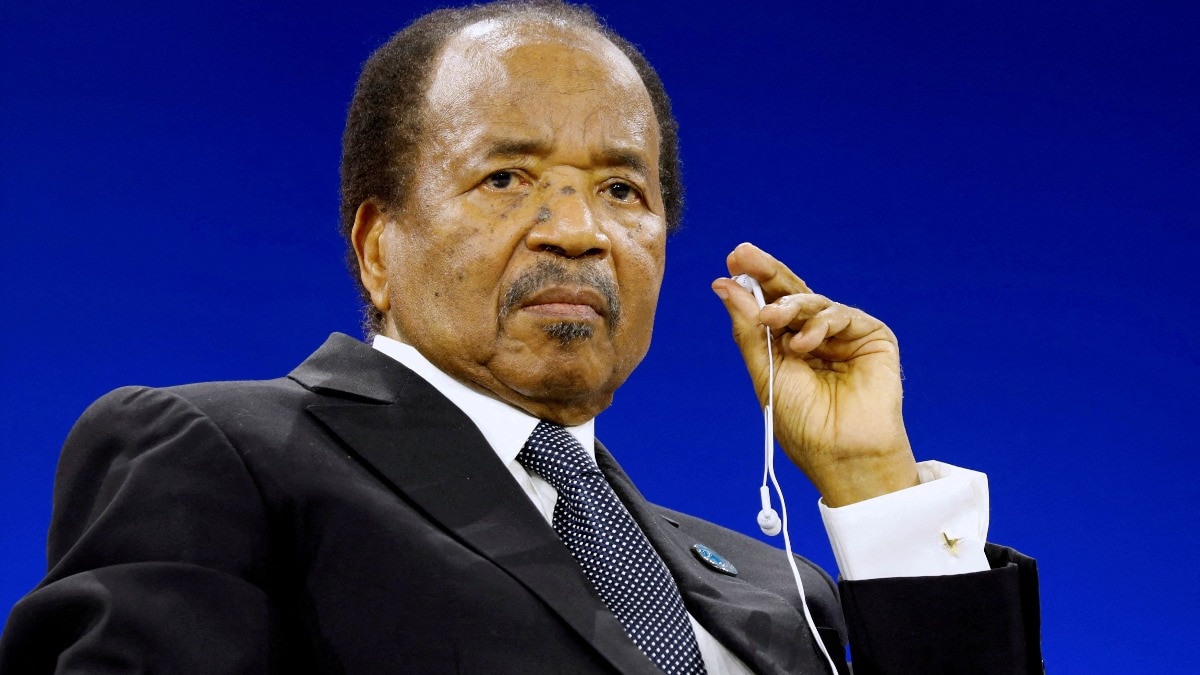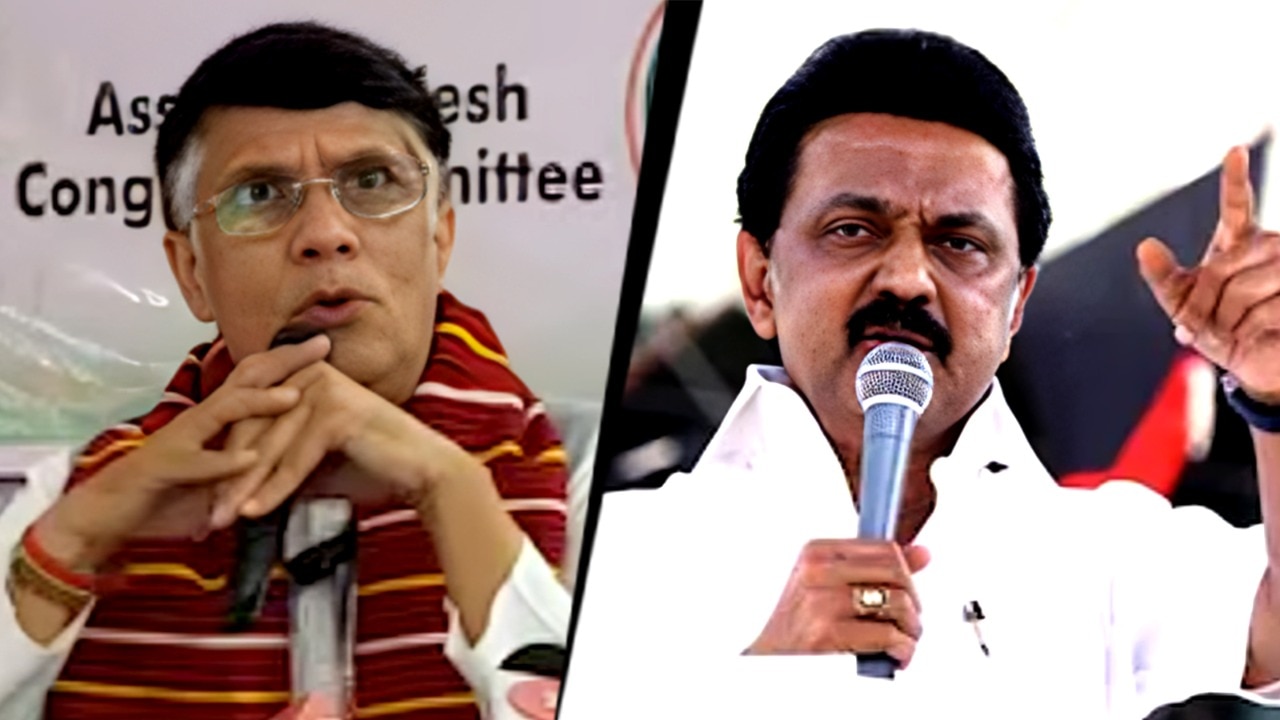“What’s worse, emotional cheating or physical cheating?” The question came up on Kajol and Twinkle Khanna’s chat show Two Much, in an episode featuring Karan Johar and Janhvi Kapoor. What followed is now all over the Internet.
Snippets from the episode have gone viral across social media, sparking a debate about whether physical cheating has become the norm in modern Indian marriages and relationships, or if there is truly a greater sin between emotional and physical cheating.
While Janhvi Kapoor was initially baffled by the question itself, wondering “they are both bad, how can one type of cheating be worse than the other?”, the older trio on the show, Karan Johar, Kajol and Twinkle Khanna, unanimously agreed that emotional cheating is worse. Phrases like “raat gayi, baat gayi” and “thand lag jaati hai” were among the justifications they offered to support their stance.
The viral banter has sparked a wave of reactions. Many are calling Janhvi’s take the most sensible one, while others are criticising Kajol, Twinkle and Karan for normalising physical cheating. The video is also being viewed as a reflection of the changing dynamics of modern relationships in India and the evolving definition of what it means to cheat.
“We live in an era that celebrates independence and instant gratification, yet people still deeply crave emotional connection. This contrast often creates confusion about loyalty, boundaries, and what truly counts as ‘cheating’,” says Shivani Misri Sadhoo, a marriage counsellor and psychologist.
Generally, women tend to find emotional cheating more hurtful, while men are more likely to see physical (sexual) cheating as more distressing.
Gender aside, cheating remains subjective and can mean different things to different couples, depending on their shared understanding of loyalty. Anyway, we took the emotional cheating vs physical cheating question to relationship experts. And it turns out, one of them might just be the bigger troublemaker.
Why emotional cheating hits deeper
Cheating, whether physical or emotional, is problematic either way. But emotional cheating, relationship counsellors say, leaves a long-lasting impact and shakes the very foundation of the bond.
“Physical cheating tends to be more visible and, unfortunately, fairly common among couples. However, when it comes to long-term emotional damage, emotional infidelity often causes far greater pain,” says Dr Nisha Khanna, a psychologist and marriage counsellor.
“Physical cheating looks like a clear violation of a boundary, so it is an instant shock for both ego and body. Emotional cheating cuts slower and deeper as the person takes time to understand when the boundaries started blurring. It shakes the very foundation of relational intimacy and safety because it shows your partner shared their inner world with someone else,” adds Ruchi Ruuh, a Delhi-based relationship expert.
Dr Khanna admits to coming across several couples who find it easier to recover from physical infidelity than emotional betrayal.
“Even for the person involved in an emotional affair, disconnecting from that attachment and returning fully to the marriage can be very difficult,” she shares.
Dr Khanna narrates an example from her practice: “A couple who had a love marriage once told me that on their honeymoon, the husband asked if he could sleep with another person. Surprisingly, the wife did not object; she felt she could not fulfil his physical needs and accepted it as part of their understanding. However, when the same husband later cheated again without her consent and developed an ongoing emotional connection with another woman, she was deeply hurt. For her, the physical act was not as painful as the emotional attachment and sharing of personal details.”
In many cases, a partner may eventually forgive a one-time physical encounter or moment of weakness, but emotional cheating, where one partner forms a deep emotional connection with someone else, is much harder to move past.
“Many couples come to therapy not because of a physical affair, but because one partner feels emotionally replaced or disconnected,” adds Shivani Misri Sadhoo.
Unlike physical cheating, emotional infidelity does not have the same visible boundaries. It begins with small emotional dependencies that slowly grow into deeper attachments outside the relationship. “What makes it especially painful is that the betrayed partner often feels they have lost their person emotionally long before discovering the truth,” adds Shivani Sadhoo.
Ruchi Ruuh’s couple therapy sessions also echo a similar sentiment that emotional cheating impacts more.
“Most people do not come to therapy because their partner had a physical affair. They come because they felt unseen, unheard or replaced emotionally. It is rarely about sex for them; it is about the division of attention, validation and connection. The ultimate question is ‘why’. ‘Why did they do it?’ ‘Was I not enough?’ ‘Am I not attractive enough?’ ‘Was I not fulfilling their needs?’”
Now, in today’s world, especially with social media and constant online interaction, emotional affairs are becoming more common and easier to hide. WhatsApp chats, online texting and even sexting blur boundaries and make emotional intimacy more accessible.
Are modern Indian couples okay with physical cheating?
Even though it may seem that way, Indian couples have not suddenly woken up to the idea of physical cheating or accepted it. The only difference now is that we are talking about it more openly and rationalising it in public conversations.
In earlier generations, infidelity existed too, but it was often hidden due to shame, societal judgement and the lack of financial or personal freedom, especially among women. People preferred to stay silent and maintain a “happy picture” in front of the world rather than confront or discuss it.
“It may seem that physical infidelity has increased, but in reality, what has grown is the openness and visibility of such discussions, not necessarily the act itself,” adds Dr Khanna.
Ruchi Ruuh agrees too. “Some urban couples have started separating sex from emotional loyalty as a way to protect themselves from disappointment or unmet expectations. But this is not new. Earlier generations faced similar issues, they just did not talk about them. Marriage back then was a social contract, not an emotional one. Today, because we expect emotional fulfilment and passion within the relationship, any violation of that contract is cheating,” she explains.
But now that physical infidelity is discussed more openly, the pain and rupture it causes in a relationship still have a long-term impact. Talking about it does not make it any less hurtful; the emotional consequences remain just as deep.
As for which kind of cheating is worse, both ultimately stem from similar root causes: unresolved conflicts, unmet emotional or physical needs, lack of communication and growing distance between partners. The real work begins in understanding why it happened and how to rebuild trust and intimacy after it.
– Ends










